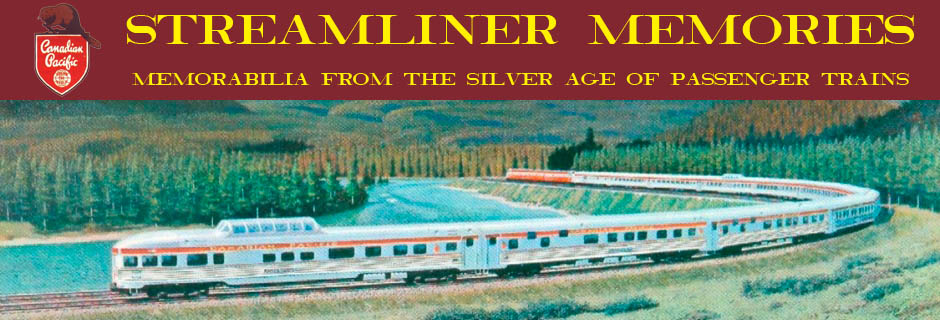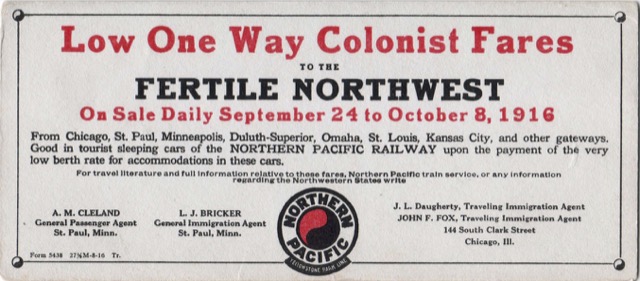Harvey Wiley was a chemist in the Department of Agriculture who helped persuade Congress to pass the Pure Food & Drug Act of 1906, leading President Roosevelt to name him the nation’s first Commissioner of Food and Drugs. Frustrated with the political system, he quit in 1912 and went to work for the Good Housekeeping Research Institute, testing whether products deserved that magazine’s seal of approval.
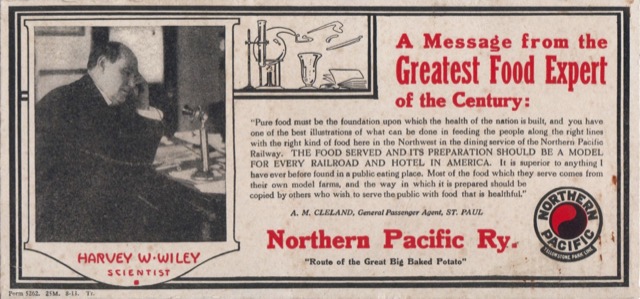
Click image to download a PDF of this blotter.
The first two blotters today (all of which are from the Dale Hastin collection) suggest that Northern Pacific dining cars were among those products. Whether Northern Pacific paid for this endorsement, gave Dr. Wiley a free trip on the North Coast Limited, or did anything at all to solicit his approval other than advertise in Good Housekeeping magazine is lost to time (though it is notable that the ads don’t mention Good Housekeeping). NP continued to use his endorsement for several years, as indicated in the 1915 ad below.
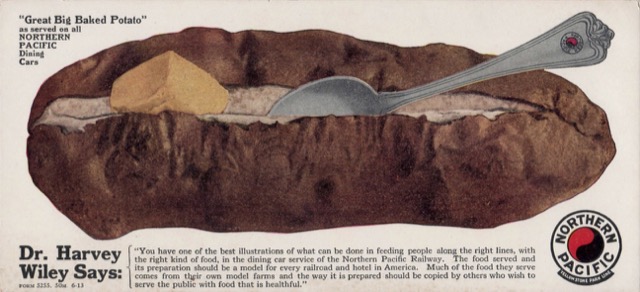
Click image to download a PDF of this blotter.
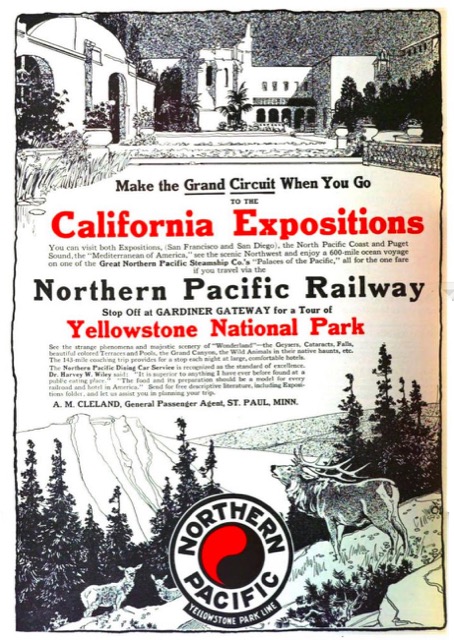 Click image for a larger view of this advertisement from the back cover of the May 15, 1915 issue of the Bellman, a Minneapolis magazine.
Click image for a larger view of this advertisement from the back cover of the May 15, 1915 issue of the Bellman, a Minneapolis magazine.
This 1913 blotter suggests that Great Big Baked Potatoes on board the North Coast Limited cost $1. That price would be prohibitive to most people, as (using the consumer price index) a 1913 dollar is more than $25 today. Of course, most people in 1913 didn’t ride luxury passenger trains: the average American only traveled a about 300 miles per year by rail, which suggests a few did most of the traveling and most did none at all.
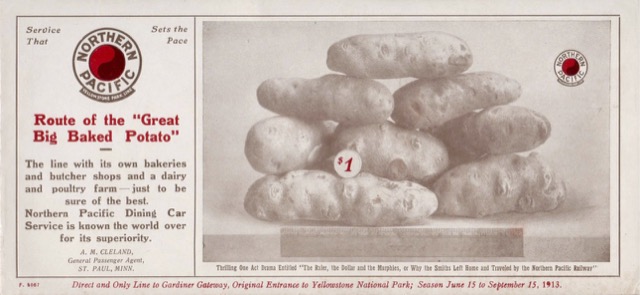
Click image to download a PDF of this blotter.
Some people of that era might make only two or three rail trips in their lifetimes. Here is a 1916 blotter advertising low-cost “colonist fares” for people seeking new farms and homes. Someone might take one of these trains, buy a farm, bring their family, and then take the train only one or two more times during their lifetime.
